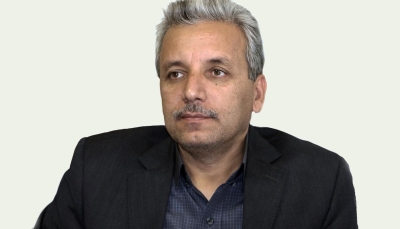Head of Islamic World Science Citation Center (ISC) announced: 40 times the quantity of science production in Persian language

The head of the Islamic World Science Citation Center (ISC) said: The amount of science production in Persian has more than doubled in the past two decades and the Farsi language has reached the fifteenth rank in the world.
Dr Mohammad Jawad Dehghani, on the sidelines of the opening ceremony of the 13th international symposium of the Association for the Advancement of Persian Language and Literature, which will be held simultaneously with the 22nd Hafez Memorial Day and hosted by the University of Shiraz from October 18 to 20, 1397; a 15-fold upgrade of Persian language from Thirteenth ranked fifteenth in the world.
The head of the Islamic World Science Citation Center (ISC) said the study of the comprehensive scientific map of the country on the one hand, as well as the emphases of the leadership of the revolution in various meetings with university faculty members and experts in Persian language, increasingly emphasized the importance of this language as an openly recognized international scientific language. Makes.
Dr.Daghghani said: "In order to achieve this, researchers in the field of research as well as researchers have paid more attention to the publication of the latest achievements of scientists in Persian language, and researchers in recent years have published more articles in prestigious Persian indexes at the Inter- The Scopus International has been able to show the status and importance of the Persian language more and more colorfully.
He said: with a comprehensive and analytical look at the Persian language situation from 1997 to the end of 2017 at the International Center for Scopus, this database shows that the publication of scientific documents in Persian over the past two decades has more than 40 times the global rank of Persian language With 15 steps upgrade, it ran from thirteenth to fifteenth.
The director of the Islamic World Science Citation Center (ISC) added: "By reviewing the documents registered in terms of the number of Persian language publications in the years 2017-1997, there is a significant growth in the Scopus database.
He said that during the 1997-2000 period, a document in Persian language was not indexed at the Scopus site. In fact, the emergence of Persian language as the language of science in 2001 has been the basis of the 2001 citation database and 42 of the documents in the Persian language have been indexed in 2001 and its increasing trend has continued over the years and in practice the number of the above documents from 2012 to more than 1,000 Has come.
Dr. Dehghani said that the number of documents indexed in Persian in 2017 has increased by 1834 documents. The comparison of the number of recorded documents shows that during the mentioned period, the number of Persian publications has increased by more than 40 times. Therefore, the average annual growth rate of science production in Persian has been 25% in the last two decades.
He pointed out that comparing the ranking of Persian language among other languages of the world in terms of the number of documents indexed in the Scopus citation database shows that Persian language has the rank of thirty in terms of the number of indexed documents in the Scopus database in other languages in 2001. It has been growing over time.
The head of the Islamic World Science Citation Center (ISC) noted: At the end of 2017, Persian language has ranked fifteenth among all the languages. The remarkable progress of the Persian language in terms of the increasing number of publications indicates the importance of the importance of this language as a scientific language on the international level.
He added that the Scopus Citation Portfolio is based on a set of laws and regulations; magazines in 58 different languages in the world. The share of publishing in different languages over the period from 1997 to 2017 indicates that nearly 90% (89.4%) of publications indexed in this site are in English.
Dr Dehghani reminded that Chinese, German, French and Spanish have ranked second to fifth. Of the 58 languages whose journals are indexed in Scopus, Farsi has ranked 15th in 2016 and 2017 and over the past two decades has totaled 22th in terms of the number of indexed articles.
He said: Based on data extracted from the Scimago database, 171 journals have been registered in the Islamic Republic of Iran and their articles have been indexed in different subject areas and in different languages of Persian and English at the Scopus site. Of these journals, about 67 journals in various scientific fields publish their articles in Persian.
The head of the Islamic World Science Citation Center (ISC) stated: "The surveys indicate that in the Scopus database in the period of 2017-1997, a total of 12946 articles in Persian were published in 67 magazines indexed at this site.
He added: The review of the journals which have the most articles in Persian language in the Scopus Citation Database shows that the journal of Isfahan Medical School with 1933 articles in the first rank, Magazine of Mazandaran University of Medical Sciences with 1704 articles and the Iranian Journal of Obstetrics, Gynecology and Infertility with 708 Third place.
Dehghani said that despite the growth of Persian language as the language of international science, it seems that great steps are needed in this regard. One of the most appropriate ways to expand Persian language is to invest in the professional publishing industry and to encourage scientific publications and conferences as a language of science.
He emphasized that the world's science publishing market was a monopolistic market, with only seven international publishers publishing more than 50 percent of the world's papers, so developing Persian language as the language of international science requires investment, planning, education And encouraging effective components in science publishing.

